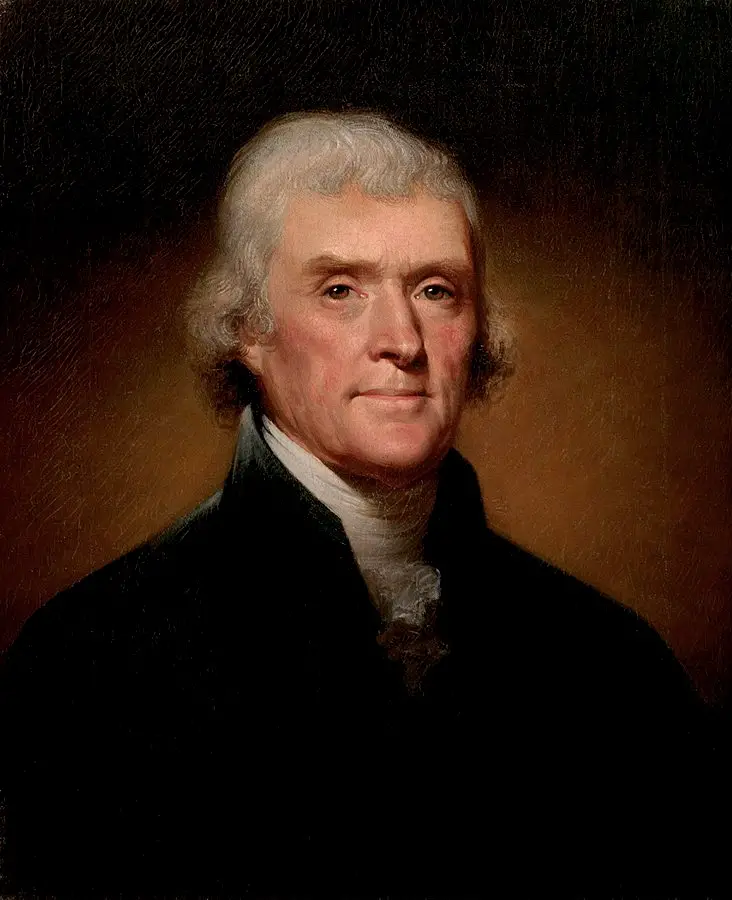New lands/Thomas Jefferson
The Europeans that set out to explore new worlds believed that they were preordained or given instructions by God to expand their territory and take over, no matter who lives there.
This idea was later called “manifest destiny,” and it also wrapped up their belief that white people were superior to all other people and cultures.
When President Thomas Jefferson was elected, he wanted to continue expansion, and in 1803 he made a deal with the French government for the Louisiana Purchase for $15 million.
This made the land from the Mississippi River to the Rocky Mountains and then from New Orleans to Canada, all part of the United States. It doubled the size of the nation.
Jefferson held a firm belief that America needed to expand into the west. His ideas included that the nation required all of the lands so that it could be independent and survive.
Jefferson was a big supporter of land ownership, especially those of the farmers, and to have the kind of independence that the country needed, it had to continue expansion. Jefferson’s idea was based on his philosophy of the “empire of liberty.”
Settlers that headed into the west faced hardships, but it didn’t stop them. Around seven million people, almost 40% of the population of the country at the time of 1840, lived in the trans-Appalachian area of the west these pioneers related moving west to the idea of independence and living free.
It’s important to remember the differences between what was happening in the United States compared to what was happening at the same time in Europe.
In the U.S., there was a chance to create their opportunities by being a pioneer. In Europe, they were creating a working-class through dependence on factories.
As new lands were being opened up in the United States, those in Europe that wanted the same opportunities began to relocate. This is called the Great Emigration.”
One of the things that remained in the United States was slavery. Many of the politicians, including Jefferson, still owned slaves. As expansion into the west happened, it caused problems in the new frontier.
The question about slavery was addressed in 1820 in the Missouri Compromise so that they agreed to admit Missouri as a state that could have slavery but also allowed Maine to join as a free state.
It also said that slavery wouldn’t be allowed north of the Missouri southern border in the balance of the Louisiana Purchase.
The law didn’t talk about some of the new areas that weren’t part of the Louisiana Purchase, and so the southern states had opportunities using slavery while the north was opposed to it.
The south built an economy based on cotton and the slaves that worked the fields. As long as the government didn’t interfere with their lives, they didn’t care about slavery laws anywhere else.
The explorers that set out from Europe and spread out across the globe all shared the idea that they had the right to take lands and resources from any of the natives that lived there.
This was all part of the idea that eventually became the idea of manifest destiny continued with Thomas Jefferson’s idea of total takeover for the nation.

What did you Learn?
How much did the United States pay France for the Louisiana Purchase?
$15 million
What was the name of Thomas Jefferson’s idea that was the basis for the expansion of the country?
Empire of liberty
How many Americans lived in the trans-Appalachian area of the west in 1840?
Seven million
What was the big confusion and squabble in the U.S. government after the Louisiana Purchase as they admitted new states?
Slavery
How was life in Europe different from life in the United States during Jefferson’s presidency?
Americans were seeking independent opportunities and Europeans were creating dependency on factories
What was the term that related to the belief that white people had a God-given right to explore and take over lands?
Manifest destiny



